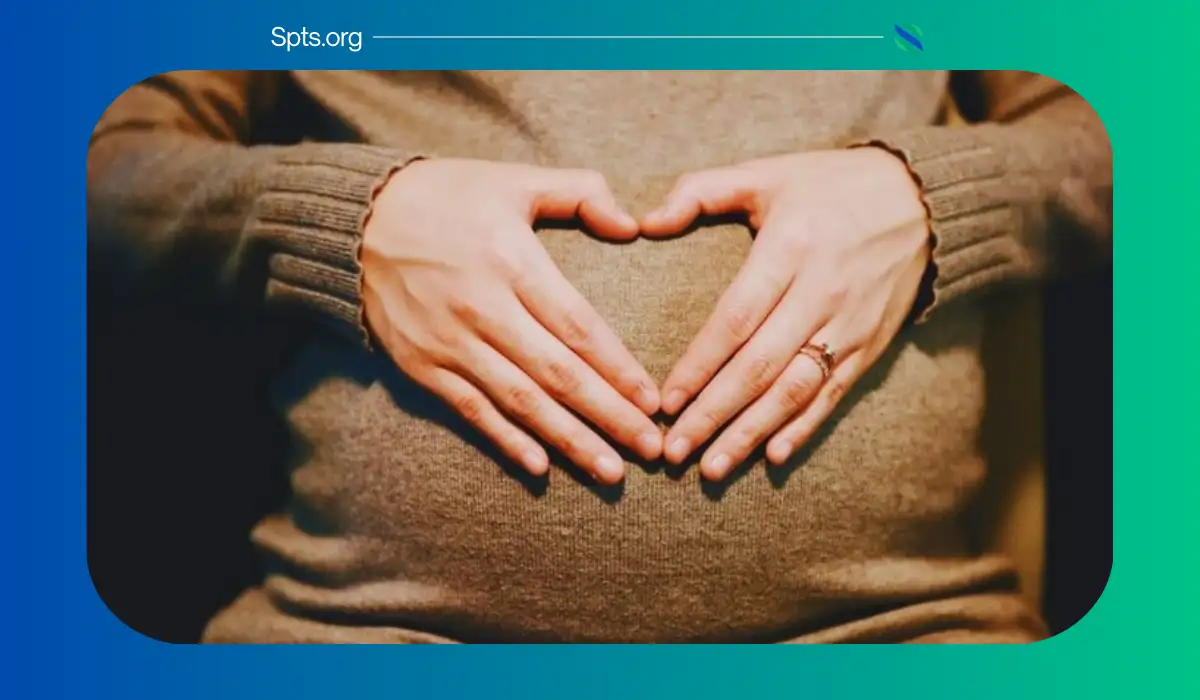Polycystic Ovarian Syndrome (PCOS) or Stein-Leventhal syndrome is a pathological condition that affects over 8-10% of women worldwide. The most common complication of PCOS is the inability to get pregnant.
Pregnancy, however, is possible with PCOS, the key is the right age, proper nutrition, and medication in some cases. In this article we will find the best age to get pregnant with PCOS, and what options are available to boost your chances of having children.
The Key Things To Know About PCOS

- Women who suffer from PCOS are unable to achieve ovulation regularly, severely depleting the chances of pregnancy.
- Women with PCOS can get pregnant without infertility treatment. Around 40% of all women suffering from PCOS can get pregnant with no treatment required.
- Age is a key aspect when it comes to pregnancy in PCOS women. Generally, younger women with PCOS have higher chances of getting pregnant without any treatment.
- Treatment can induce ovulation in PCOS women and enhance their chance of pregnancy.
Impacts of PCOS On Fertility
PCOS is a disorder of the ovaries, meaning it impacts the ovulation process. Those suffering from PCOS have an extended egg maturation phase, hence delayed ovulation. In some cases, ovulation doesn’t happen at all. Additionally, many women also experience no period and have to deal with obesity due to hormonal changes.
The reason behind PCOS is the elevated levels of Luteinizing Hormone (LH) and inadequate Follicle-stimulating Hormone (FH).
When the body is low on follicle-stimulating hormone (FH), the follicles develop in the ovaries but don’t reach the stage of maturation. It results in irregular ovulation or no ovulation at all. As a result, women with PCOS have difficulty getting pregnant.
Common characteristics of PCOS
PCOS can manifest in different forms depending on the individual. However, some typical characteristics are mostly present in women suffering from PCOS,
- Formation of multiple egg follicles
- Elevated levels of male sex hormones
- Lower than normal numbers of periods (oligomenorrhea)
- Insulin sensitivity which is characterized by the body’s inability to respond to insulin.
- Weight gain and obesity.
- Male pattern hair growth in women (hirsutism)
- Alopecia is characterized by patchy and permanent hair loss.
Are polycystic ovaries and Polycystic Ovarian Syndrome the same?
Polycystic ovaries and Polycystic Ovarian Syndrome are not the same. PCOS is a condition when there are multiple follicles in the ovaries that appear as cysts on the ultrasound. On the other hand, PCOS is characterized by a higher number of follicles and other hormonal imbalances.
When a woman is diagnosed with;
- Polycystic ovaries
- Suffers from irregular menstrual cycle
- Has higher levels of androgens (male hormones)
Best Age to Get Pregnant With PCOS
Age is an important criterion when it comes to pregnancy. For women with PCOS, the best age to get pregnant is 30 years and before. PCOS or not the chances of pregnancy decline as women age.
At 30, pregnancy chances are over 80% in a 12-month cycle. As you approach 35, the chances decline to 66% only, and beyond that, conceiving only has chances of around 40%.
Women with PCOS therefore have the best chance of getting pregnant when they are around 30 if they have no other pregnancy complications.
Can Women Reaching 40 Years of Age With PCOS Become Pregnant?
If a woman suffering from PCOS can ovulate, she can conceive at 40. That said, the chances are slim, ovulation is not the only requirement for pregnancy.
Much of it also depends on the quality of the egg produced. As women approached the age of 36-37, the quality of eggs began to deteriorate.
At this age, 30% of all eggs produced are chromosomally abnormal. In women of 40 years and older egg quality deteriorates further and 60% of eggs are abnormal.
Women with PCOS who could ovulate already have poor-quality eggs. It could be due to several factors;
- Hypersecretion of Luteinizing Hormone (LH)
- Deficiency of Follicle-stimulating Hormone (FH)
- Insulin Resistance
Given these factors, it’s quite challenging for women over 40 suffering from PCOS to get pregnant. On top of that, advanced age has several pregnancy-related complications, higher risks of miscarriage, and birth defects that all make it quite demanding.
Is Spontaneous Pregnancy Possible In Women With PCOS?
Yes, spontaneous pregnancy is certainly possible with PCOS, especially in women who are 30 or younger. The irregularities in menstrual cycles may make it challenging, as long as you can ovulate and age is on your side, you can become pregnant with no medical assistance needed.
Data suggest that spontaneous pregnancy outcomes in women with PCOS come to around 58.3%. Additionally, women with PCOS aged 30 or younger have a 70% to 80% chance of getting pregnant within two years of trying to conceive.
What are the Risks Associated With Pregnancy With PCOS?
Pregnancy always carries some risk, however, in women with PCOS, it’s higher. Here are some common complications that women can face with pregnancy if they suffer from PCOS,
- 30% to 50% higher risk of first-trimester miscarriage than normal women.
- 30% higher risk of gestational diabetes.
- Women with PCOS are more vulnerable to pre-eclampsia.
- Around 6.7% higher risk of preterm birth than normal women.
How long can it take to get pregnant with PCOS?
There’s no definite answer on how long it will take to get pregnant if you suffer from PCOS. If you are young and usually don’t suffer from extra long menstrual cycles, you have a higher chance of getting pregnant.
In that case, it may also take a while before you can conceive because usually, pregnancy in PCOS occurs after nine to twelve months of trying to get pregnant.
Do Medications Help With PCOS and Pregnancy?
Advances in medical sciences have now made it possible for women with PCOS to get pregnant. Several treatment options are available that dramatically improve pregnancy outcomes.
Treatment generally depends on the diagnostic test recommended by the doctors and their results. Based on the test doctors can prescribe the following treatment options;
- Metformin Course
- Clomiphene Medication
- Dual SGLT1/2 inhibitor Licogliflozin (latest treatment option)
- Fertiloscopy
Conclusion
Getting pregnant with PCOS can be challenging, but all is not lost for those who cherish the dream. The key here is age, if you are young, usually 30 or below you have the best chance of getting pregnant with PCOS.
If you suspect that you have PCOS, consult a doctor immediately. Early diagnosis and professional guidance coupled with the right treatment options and lifestyle changes can significantly boost pregnancy chances.
References
- Haas J. and Bentov Y. (2017). Should metformin be included in fertility treatment of PCOS patients? DOI:
https://doi.org/10.1016/j.mehy.2017.01.012 - PCOS and diabetes. (n.d.).
https://www.cdc.gov/diabetes/basics/pcos.html


